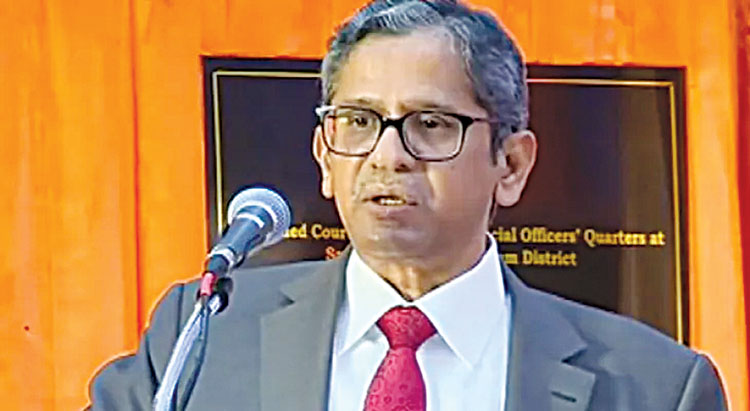Chennai, April 24 (Agency) Judges should be aware of all the social realities and must cater to the social needs and expectations, Chief Justice of India N V Ramana said on Saturday. “Judging is not an easy task. Judges should be aware of social realities. We have to carefully watch the changing social needs and expectations. The world is moving very fast. We are witnessing this change in every sphere of life,” he said. Ramana was speaking after laying the foundation stone for an administrative block of the Madras High Court and inaugurated the court buildings located in Namakkal and Villupuram districts in Chennai. He said that from a 5-day Test match, cricket has moved on to a 20-20 format. “We prefer short duration entertainment over a three-hour-long movie. From filter coffee, we have moved on to instant coffee. “In this era of instant noodles, people expect instant justice. But they do not realize that real justice will be a casualty if we strive for instant justice,” the Chief Justice cautioned.
“We judges have to sharpen our ideas and perceptions. We need to expand our knowledge base and adopt technology as an enabler. There cannot be a gap between the mind of a judge and the needs of the society. Ultimately, we are entrusted with the duty to deliver justice for all.” Speaking on regional benches of the Supreme Court, he said a judge from the marginalised section understands the issue of marginalised better. Inclusivity then talks of geographical barriers faced by both litigants and lawyers. Others present in the occasion included Tamil Nadu Chief Minister M K Stalin, Supreme Court judges V Ramasubramanian and M M Sundresh and Justice Munishwar Nath Bhandari, Chief Justice of the Madras High Court. The judiciary was vested with immense Constitutional responsibility of maintaining the rule of law and checking executive and legislative excesses. “We have the duty of upholding and enforcing the constitutional values.” “It is no doubt a heavy burden.
But it is one that we have gladly chosen on the day we took our constitutional oath. This is the reason why strengthening judicial institutions has been my top priority. Strengthening the judiciary is imperative for a democracy, sustained on the rule of law.” Dispensing justice is not only a constitutional duty, but also a social one, he said, and added that conflicts are inevitable for any society. But constructive resolution of conflict is integral to maintain the social order. “Constructive conflict resolution” is not a mere technical job. Particularly in a country like India, judges cannot blindly apply the rules, procedures and statutes. “After all, conflicts have a human face,” he said. “We are constantly aware about our duty to render justice, not merely procedural, but also substantial. Before rendering any decision, the judges have to weigh several socio-economic factors and the impact of their decision on the society.”

